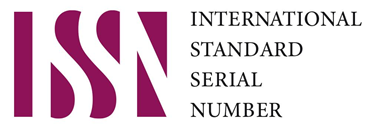REVIVING THE KLANG VALLEY ECONOMY DURING PANDEMIC THROUGH DIGITALISATION OF THE MARITIME LOGISTICS INDUSTRY
Article 3
DOI:
https://doi.org/10.46754/jml.2021.12.003Keywords:
Maritime logistics, Digitalisation, COVID-19 pandemic, Competitiveness, Fuzzy DelphiAbstract
The maritime logistics industry is an international business ecosystem and backbone of Malaysia’s economic development. Due to the COVID-19 pandemic, we have witnessed a drastic decline of industries all over the world, which may take a very long time to recover. This paper discusses the digital transformation of the maritime logistics industry based in the Klang Valley of Peninsular Malaysia as a strategic plan to improve existing business processes and make it resilient in face of the challenges brought on by the pandemic. We evaluated the digitalisation practices of maritime logistics companies to identify enablers that can help restore the economy as the industry tries to move on under the shadow of COVID-19. The Fuzzy Delphi (FD) method is used to collect and analyse data based on the response of 18 experts with more than five years of industry experience. A total of 15 key enablers were determined and ranked in terms of priority, with the top three being changes in the long-term industry growth rate, marketing innovation and implementation of digital platforms. These key enablers may then be used to develop good strategies to enhance competitiveness and build the resilience of this sector against the disruptions brought on by the pandemic.
References
BERNAMA. (2020, December 20). Pandemik, kabotaj, firma pseudo-Malaysia, antara gelora diharungi industri maritim. Retrieved from Free Malaysia Today (FMT), https://www.freemalaysiatoday.com/category/bahasa/tempatan/2020/12/20/pandemik-kabotaj-firma-pseudo-malaysia-antara-gelora-diharungi-industri-maritim/
Choa, H., & Lee, J. (2017). Searching for logistics and regulatory determinants affecting overseas direct purchase: An empirical cross-national study. The Asian Journal of Shipping and Logistics. DOI: https://doi.org/10.1016/j.ajsl.2017.03.002
CSCMP. (2016). Council of Supply Chain Management Professionals glossary. Council of Supply Chain Management Professionals.
Dagman, K.-H., & Landstrom, F. (2004). Intermediaries Handling Disintermediation, Due to the Changing Business Environment of e-Commerce.
Edvard, T., Marija, J., Saša, A., & Andreja, P. (2021). Digital transformation in the maritime transport sector. Technological Forecasting and Social Change.
Imran, A., & Mohamed Gamal, S. (2021). Implementation of supply chain 4.0 in the food and beverage industry: Perceived drivers and barriers. International Journal of Prodictivity and Performance Management
Jahn, C., Kersten, W., & Ringle, C. (2017). Digitalization in maritime and sustainable logistics. Proceedings of the Hamburg International Conference of Logistics (HICL), No. 24. Berlin: epubli GmbH.
Llanto, G. M., & Navarro, A. M. (2012). The Impact of Trade Liberalization and Economic Integration on the Logistics Industry: Maritime Transport and Freight Forwarders. PIDS Discussion Paper Series.
Michele Acciaro, & Christa Sys. (2020). Innovation in the maritime sector: Aligning strategy with outcomes. Maritime Policy & Management. DOI: https://doi.org/10.1080/03088839.2020.1737335
Osobajo, O., Koliousis, I., & McLaughlin, H. (2021). Making sense of maritime supply chain: A relationship marketing approach. Journal of Shipping and Trade. DOI: https://doi.org/10.1186/s41072-020-00081-z
Othman. (2011). The strength of Malaysian Maritime cluster: The development of maritime policy. Ocean & Coastal Management, 54(8), 557-568. DOI: https://doi.org/10.1016/j.ocecoaman.2011.02.004
Panayides, P. (2006). Maritime logistics and global supply chains: Towards a research agenda. Maritime Economics & Logistics. DOI: https://doi.org/10.1057/palgrave.mel.9100147
Parola, F., Satta, G., & Panayides, P. (2014). Corporate strategies and profitability of maritime logistics firms. Maritime Economics & Logistics. DOI: https://doi.org/10.1057/mel.2014.18
Prokopenko, M., & Kochubei, O. (2021). Trends of industrial enterprises development in the context of digitalization. International Conference on Sustainable Transport System and Maritime Logistics (p. 100). Georgia: Batumi Navigation Teaching University.
Šekularac Ivošević, S. (2021). Envisioning marketing in a digital technology-Driven maritime business. Journal of Innovative Business and Management. DOI: https://doi.org/10.32015/JIBM/2021.13.1.22-28
UNCTAD. (2020). Review of maritime transport 2020. New York: United Nations.
Yew, W., Lieo, D., Shin, W., Tan, T. R., Stoller, & Christopher, P. (2020). Issues on the logistics challenges in the pandemic period. Journal of Critical Reviews, 776.
Yunchao, C., Selamah, A., Ruzita, M., & Mohd Nahar, M. (2020). The association between household debt and marriage satisfaction in the context of urban household in Klang Valley, Malaysia. Journal of Emerging Economies & Islamic Research, 14. DOI: https://doi.org/10.24191/jeeir.v8i1.7122

















